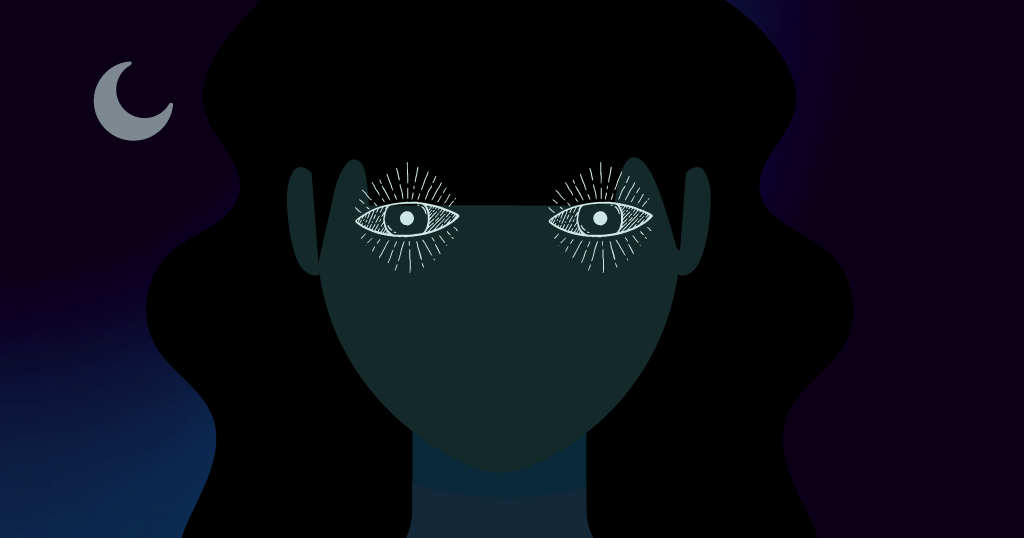Ketamine obviously isn’t a non-prescription therapy, but it is far enough outside the mainstream, and promising enough, that I (the editor) jumped at the chance to hear about it.
Editor’s note
Guest author Dave is a self-employed writer and a musician who has undergone ketamine treatments for depression for three years. His description here focuses mostly on what a session is like.
Other info you might want to know about his treatments:
- They cost $450 a session.
- Insurance does not cover the sessions.
- The practitioner is a 90-minute drive away.
- Due to wooziness after each treatment, a companion drives him home.
- His original sessions were every two weeks, and then gradually tapered over three years to every six months.
- The treatments coincided with separation and divorce proceedings from his wife of 20+ years.
- He has used antidepressants since 1995. He has halved his dosage since beginning the treatments.
Dave’s account
The experience itself
The experience itself is indescribable and frustratingly difficult to remember. There are visual and auditory hallucinations that are weird and fun and not usually specific. I do see very sharp and detailed faces of loved ones, including friends I’ve lost recently.
Music drives the experience
For me, music plays a huge role in these treatments and drives the content and rhythm and dynamic of the hallucinations. I play weird ambientish music with no words on my very fancy headphones.
My fave thing to play is a fiddler from Sweden called Knut Hamre. Kind of spacey, ethereal, without rhythm and meandering, but I think it helps that the sounds come from vibrations of an actual piece of wood and strings. (Most ambient music I have is electronic.)
Letting go is key
Like many drug trips, it seems profound and life changing in the moment, but it kind of slips through your fingers when you try to put it into words afterwards. I have stopped trying to grasp and hold the experience, and remember to just let go and float. What I come away with is, “I must remember how fantastic this is,” and, “If I didn’t have kids and had a choice, I’d never go back to reality.”
This is part of why I also fear the stuff. I love it too much, and it tells me things that seem too good to be true.
Joyful and conflict-free bond
Gratitude and relief are strong feelings throughout.
I feel a strong sense of clarity and of seeing through to the essence of things. Essence is a big word for me when I’m going under. With that comes an overwhelming and exponentially greater sense of calm and relaxation. Relaxed, times 100. No pain, either physical or mental. Struggles and conflict and worries are laughably tiny and no longer important.
Eventually words fall away. I feel a deep and pure and joyful and conflict-free bond to every person I’ve ever had a strong human connection with. There’s a solid realization that everything is going to be okay, and we are all together with love. It feels so wonderful and profound and irrefutable that I begin to weep.
Physical experience
Physically it’s extremely pleasant. Discomfort – the way I’m laying, or an itch – seems 1,000 miles away. It can feel like there’s a very heavy blanket on me.
I once felt I was melting, for two seconds in a 45-minute parade of delusions. Unlike the Wicked Witch, however, my melting was without pain and actually felt interesting. Sometimes I laugh out loud. I never worry that I’m actually melting.
Nurses check in on you a lot
The gentle and kind and patient nurses, to whom I feel comically outsized gratitude, are constantly asking me how I’m doing, and whether I’m nauseated. I asked them if patients freak out sometimes.
“Oh, yeah,” they answer with enthusiastic and rueful nods, and a roll of the eyes.
Coming down
When I realize that I’m starting to come back down, this inevitably makes me sad. I’ll need to face the conflicts and struggles and the guilt and the concrete and gravel and Trump and Covid, etc. I do leave with a renewed sense of purpose towards my kids. Somehow this feels revelatory although I knew it before.
When the nurses ask me how I’m doing, which they do constantly throughout the session, I am speechless and take a long pause before giving a weak but happy thumbs up. The only thing I can think of to say, tearfully: “Fuckin fantastic!”
Words seem like puny things
Pretty cosmic, huh? I feel like “why don’t we all just stop struggling, take this shit, and bliss out til we die? Life would be shorter but it would be worth it!” (More dangerous thinking …) Another takeaway is marvel at the infinite universes contained in these overlarge brains we have. Why? What is language and what is its relationship to pure wordless thought? Sentences form — “I am floating” — and shrink — “I am.” Then shrink again: “Am — Being — Existence…”
I could go on but it reads like the babblings of an acid casualty. In the moment it’s genuinely mind-blowing.
Afterwards I’m weak and shaky and need help getting to the car. Sometimes I am still a bit shaky 36 hours later.
________________
This content was first published on March 26, 2024.

Dave H.
Dave is a Cheesehead. He plays guitar and sings in two local bands. For the past 35 years he has made a living writing about the technical aspects of filmmaking.




